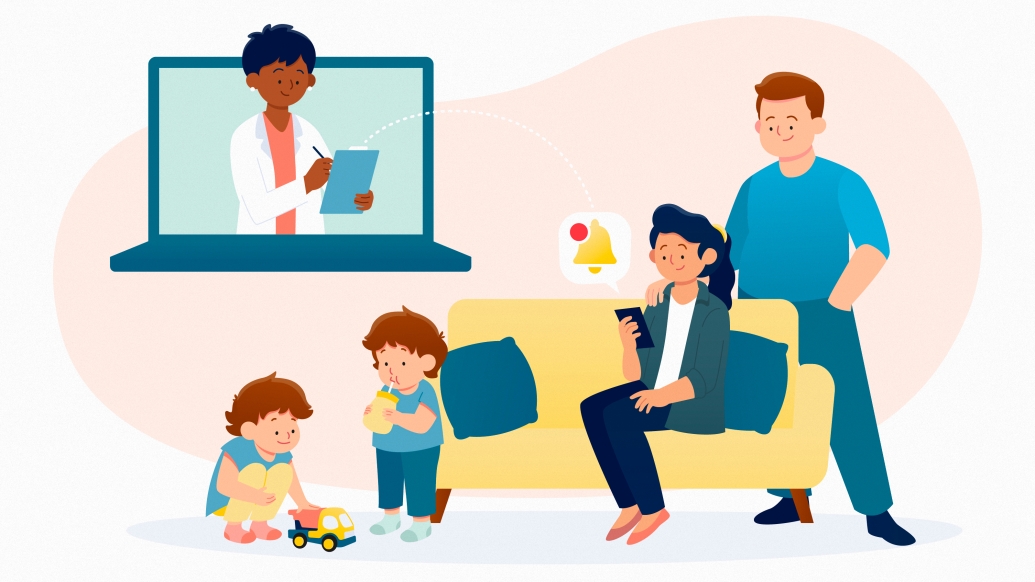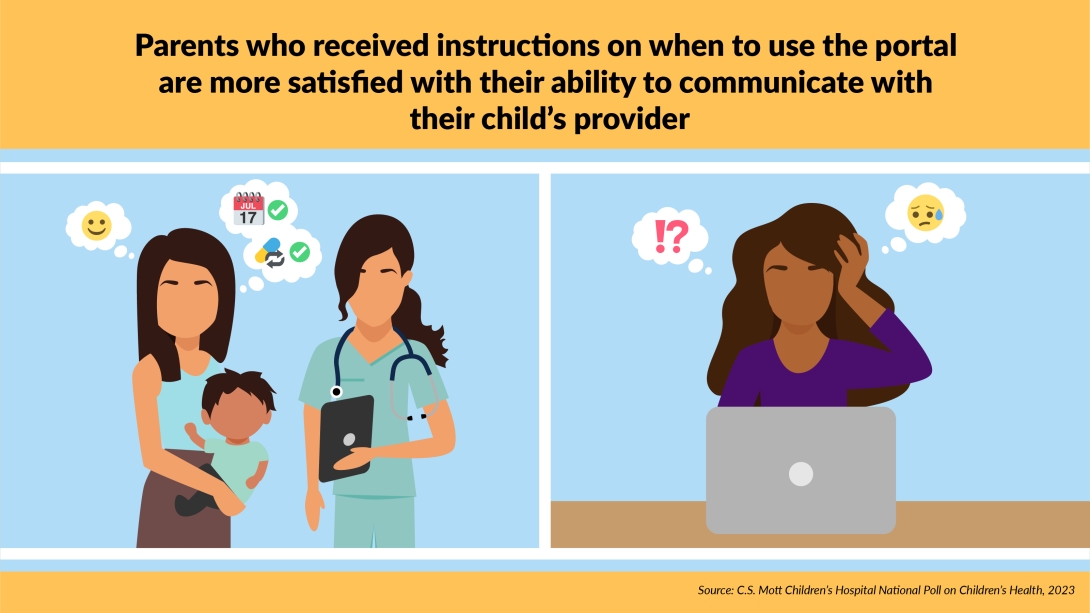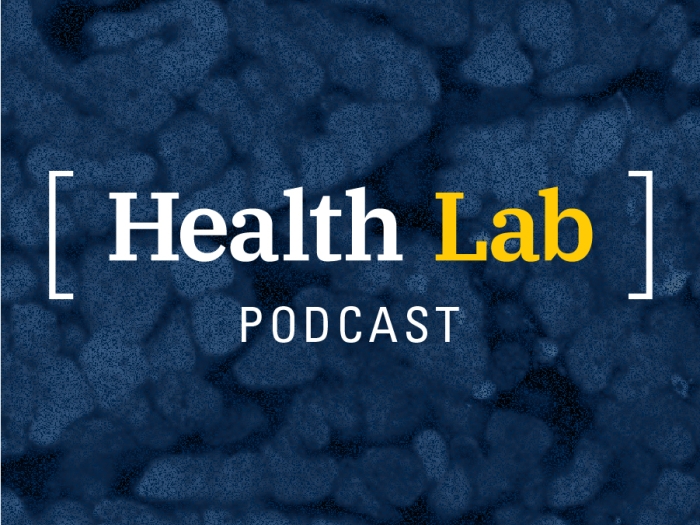1 in 3 parents who have set up a portal for kids have used it to get advice about their child’s illness, injury or symptoms
5:00 AM
Author |

For many busy families, online access to a child’s health provider for medical advice, health records or prescription refills could be a convenient option.
Yet, only 43% of parents have set their child up for a patient portal – an online tool allowing communication between patients and medical providers – and others may not be optimizing portal use, suggests the University of Michigan Health C.S. Mott Children’s Hospital National Poll on Children’s Health.
“Patient portals offer a wide range of benefits, including decreasing unnecessary hassles for providers and patients and improving access to both the medical staff and a child’s medical information,” said Sarah Clark, M.P.H., co-director of the poll.
“Given all the conveniences portals offer, it’s surprising that over half of parents have not set one up for their child, most commonly because they don’t see a need for it. This report suggests many parents may not be aware of all the potential benefits of using a patient portal for children.”
Parents whose children do have a portal tout those perks, with a third polled saying they’ve received advice about their child’s illness, injury or symptoms through the platform. Nearly all of these parents say they got the level of guidance they anticipated within a reasonable amount of time and usually from the person they expected.
Using the tool
The majority of parents who use the portal for their child have also used the tool to make appointments, view test results, complete pre-visit forms and request prescription refills. Others use it for telehealth visits, requests for immunization records or forms for school, sports or camps or for a referral, according to the nationally representative report, which is based on 2,095 responses from parents of children 18 and under.
Still, among parents who did not have a patient portal for their child, a little less than a third said they do not see any need for it, about a quarter did not know it had to be set up, and about a fifth prefer other modes of communication.
Very few parents cited privacy concerns or technical problems but some didn’t think their provider offered a portal option for their child.
“Our poll suggests that pediatric health providers should continue efforts to inform families about the benefits of patient portals, and parents who haven’t set one up should take steps to learn more about portal advantages and how to establish one for their child,” Clark said.
“This report suggests many parents may not be aware of all the potential benefits of using a patient portal for children.”
Managing expectations
Some providers, she notes, have expressed concerns about parents having unrealistic expectations about how quickly the provider can respond to portal inquiries, including situations where the child may need urgent medical attention.
But providers can do their part to manage these expectations, Clark says. Parents who received instructions from their provider or medical staff on how to use and access the portal reported more benefits, such as it saving them time and hassle.
However, over a third of parents with portals did not receive such guidance – and these parents had the lowest satisfaction ratings on communication with their child’s provider.
“Instructions from the practice on how to optimize portal benefits appear to be the key to helping parents use it effectively and appropriately and increase families’ satisfaction with the experience,” Clark said.

Access changes as kids age
Parents of older children should be aware that they may eventually lose access to some of their child’s health information. Among parents who have a portal for their teen, 1 in 3 have noticed differences in what they could see or do on their child’s portal.
These changes are mandated by states’ minor privacy laws, which requires children gain more confidentiality once they reach a certain age. Parents will then have a limited proxy account that doesn’t show them all of a child’s health information.
Clark says these laws are intended to protect the confidentiality of adolescent health care, including services for sexual health, mental health, or substance use. Portal limitations encourage teens to disclose and seek care for health behaviors they may not want known to their parents, such as a pregnancy test or prescription for birth control.
However, among parents who have a portal for their teen, 74% believe parents should retain portal access until the child turns 18. Many healthcare systems have an option where teens can grant portal access to their guardian, which might appeal to these parents, Clark says.
“Portal limitations are designed to protect the confidentiality of adolescent health care,” Clark said. “Before parents insist their teen give them portal access, or they attempt to get around portal limitations, parents should first consider the implications of their child being reluctant to seek confidential healthcare services.
“There are also potential benefits of teens actively participating in their own care and taking ownership of their health by learning to interact with providers via the portal.”

Explore a variety of health care news & stories by visiting the Health Lab home page for more articles.

Department of Communication at Michigan Medicine
Want top health & research news weekly? Sign up for Health Lab’s newsletters today!





